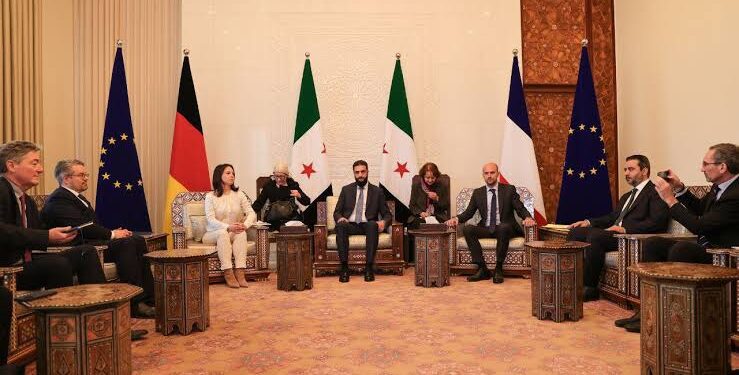Six European Union member states, including Germany, France, and Spain, have called for a temporary suspension of sanctions on Syria. According to a confidential document obtained by Reuters, these countries advocate for easing restrictions in key sectors like transport, energy, and banking. This proposal is set to be discussed by EU foreign ministers during a meeting in Brussels on January 27.
Rethinking Sanctions Post-Assad Era
The demand for policy change comes after the ousting of Syria’s President Bashar al-Assad. Insurgent forces led by the Islamist group Hayat Tahrir al-Sham (HTS) took control of Damascus, reshaping the geopolitical landscape. The EU document emphasizes the need to reassess the sanctions regime to support humanitarian efforts and stabilize the region.
Targeted Areas for Sanctions Relief
The six nations propose lifting sanctions to enable civilian flights and resume financial transactions between the EU and Syria. They also seek to reevaluate restrictions on high-value goods and oil and gas technology exports. However, the document stresses the importance of maintaining sanctions against individuals and entities linked to the Assad regime.
Human Rights Conditions
The proposal highlights the EU’s commitment to human rights and the protection of minorities. The document warns that if Syria’s new leadership fails to meet these expectations, sanctions could be reinstated. A snapback mechanism is proposed to reapply lifted sanctions if necessary.
Coordination with Global Partners
The EU nations insist on a coordinated approach with international partners before any sanctions relief for HTS. The document underlines that lifting restrictions on HTS and its leader Ahmed Al-Shara’a will require careful evaluation and United Nations involvement.
US Sanctions Exemption
The United States recently issued a six-month exemption for transactions with governing institutions in Syria. This move aims to facilitate humanitarian aid and reconstruction efforts in the post-Assad era. The EU nations argue that a similar approach could enhance the bloc’s influence in Syria.
Diplomatic Engagement
Kaja Kallas, the EU’s foreign policy chief, met Syria’s new foreign minister, Asaad Hassan al-Shibani, in Riyadh on January 12. During the meeting, Kallas urged Syria’s leadership to prioritize an inclusive transition that safeguards minority rights. She stressed that easing sanctions depends on visible progress toward peace and inclusivity.
Challenges Ahead
While the proposal signals a shift in EU policy, it faces resistance from member states wary of empowering HTS. Critics argue that lifting sanctions without guarantees could undermine regional stability. The EU’s next steps will depend on detailed assessments and consultations with its global allies.
This potential policy shift marks a pivotal moment in Europe’s approach to Syria. It reflects the complexities of balancing humanitarian priorities with long-term security concerns in a volatile region.
Related Stories:
Turkiye’s FM Meets Syria’s New Leader, Calls for Lifting Global Sanctions
Top Western and Arab Leaders Meet in Riyadh to Discuss Syria’s Future
Turkiye expected to play key role in Syria’s economic recovery
















